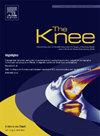The risk of early revision after trainee led primary unicompartmental and total knee replacement
IF 2
4区 医学
Q3 ORTHOPEDICS
引用次数: 0
Abstract
Background
Orthopaedic trainees must demonstrate competence in performing major joint replacement. This study aimed to determine the impact of lead surgeon grade and level of supervision for trainee led operations on the incidence of early revision procedures following elective primary knee replacement.
Methods
Data from the National Joint Registry was obtained for all primary elective total (TKR) and partial (UKR) knee replacements performed within a single NHS University Teaching Hospital from 2007 to 2021. Multivariate logistic regression was used to determine the risk of all cause revision within 1-year of the index procedure in relation to surgeon grade and level of supervision for trainee led (TL) operations.
Results
9,931 primary knee replacements (KR) were undertaken, of which 4850 (48.8 %) were UKR. Revision procedures were performed in 109 (1.1 %) patients within 1-year of their index operation. The risk of revision was not significantly different for consultant-led (CL) or TL operations (OR 0.84, CI 0.55–1.26, p = 0.4). In comparison to CL operations, no difference was observed in the risk of revision for either consultant-supervised trainee (TS, OR 0.83, CI 0.49–1.35, p = 0.7) or non-consultant supervised trainee (TU, OR 0.84, CI 0.46–1.43, p = 0.7) operations. These trends remained on sub-analysis for both UKR and TKR operations.
Conclusions
No differences were observed in the incidence of revision within 1-year of primary KR between consultant led and trainee led operations. These findings suggest that training surgeons in both TKR and UKR operations is not associated with an increased risk of early adverse patient outcomes requiring revision surgery.
受训者主导的原发性单室和全膝关节置换术后早期翻修的风险
骨科实习生必须证明有能力进行大关节置换术。本研究旨在确定主刀医师的级别和对受训者主导手术的监督水平对选择性原发性膝关节置换术后早期翻修手术发生率的影响。方法从国家联合登记处获得2007年至2021年在单一NHS大学教学医院进行的所有初级选择性全膝关节置换术(TKR)和部分膝关节置换术(UKR)的数据。采用多变量logistic回归来确定指标手术后1年内发生全因修正的风险与外科医生等级和培训生主导(TL)手术的监督水平之间的关系。结果共行原发性膝关节置换术9931例,其中UKR 4850例(48.8%)。109例(1.1%)患者在指数手术后1年内进行了翻修手术。顾问主导(CL)或TL手术的翻修风险无显著差异(or 0.84, CI 0.55-1.26, p = 0.4)。与CL手术相比,顾问监督的受训者手术(TS, OR 0.83, CI 0.49-1.35, p = 0.7)和非顾问监督的受训者手术(TU, OR 0.84, CI 0.46-1.43, p = 0.7)的翻修风险均无差异。这些趋势仍然存在于UKR和TKR业务的子分析中。结论咨询师领导与见习者领导的原发性KR手术1年内翻修率无显著差异。这些发现表明,对外科医生进行TKR和UKR手术的培训与需要翻修手术的早期不良患者结果的风险增加无关。
本文章由计算机程序翻译,如有差异,请以英文原文为准。
求助全文
约1分钟内获得全文
求助全文
来源期刊

Knee
医学-外科
CiteScore
3.80
自引率
5.30%
发文量
171
审稿时长
6 months
期刊介绍:
The Knee is an international journal publishing studies on the clinical treatment and fundamental biomechanical characteristics of this joint. The aim of the journal is to provide a vehicle relevant to surgeons, biomedical engineers, imaging specialists, materials scientists, rehabilitation personnel and all those with an interest in the knee.
The topics covered include, but are not limited to:
• Anatomy, physiology, morphology and biochemistry;
• Biomechanical studies;
• Advances in the development of prosthetic, orthotic and augmentation devices;
• Imaging and diagnostic techniques;
• Pathology;
• Trauma;
• Surgery;
• Rehabilitation.
 求助内容:
求助内容: 应助结果提醒方式:
应助结果提醒方式:


